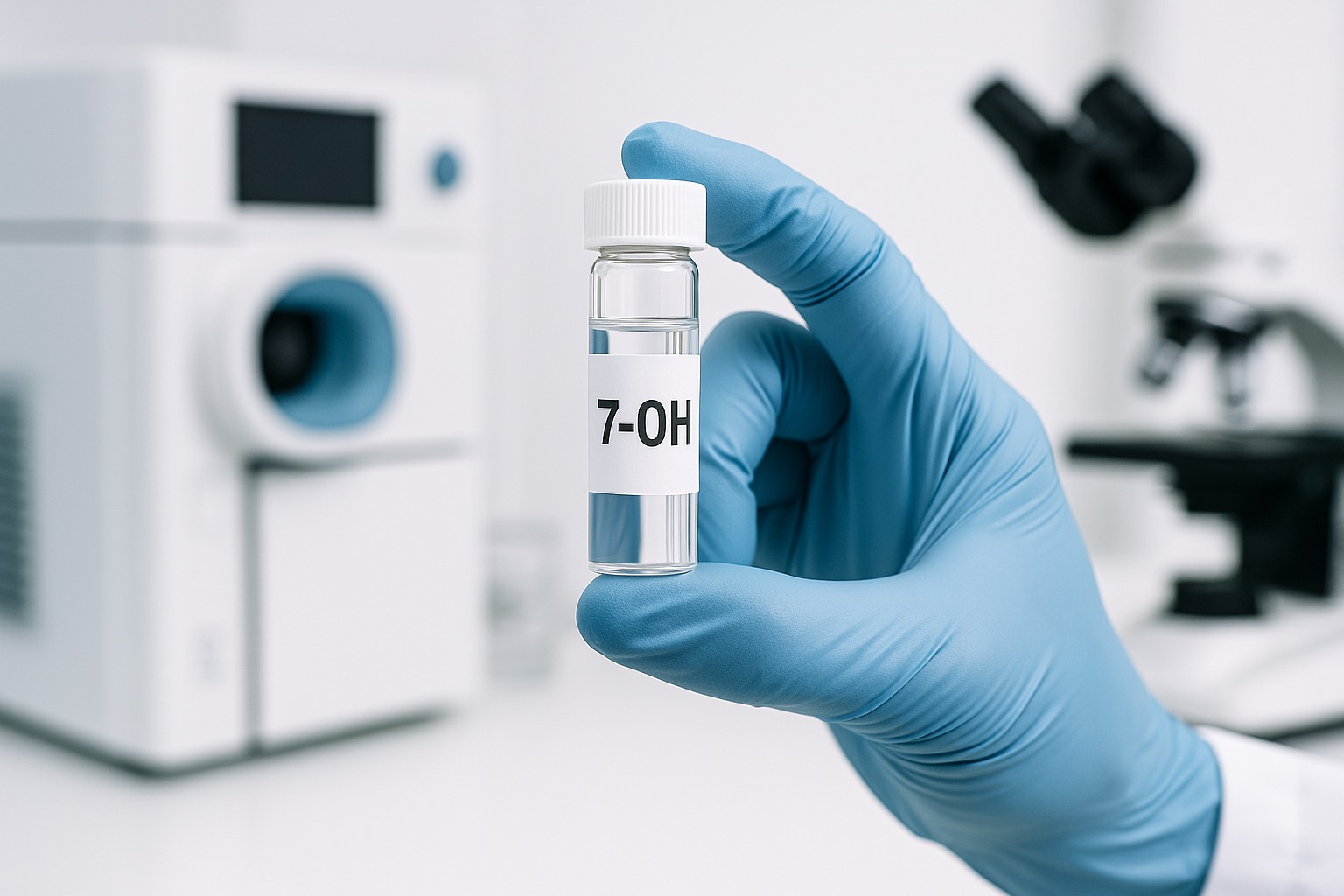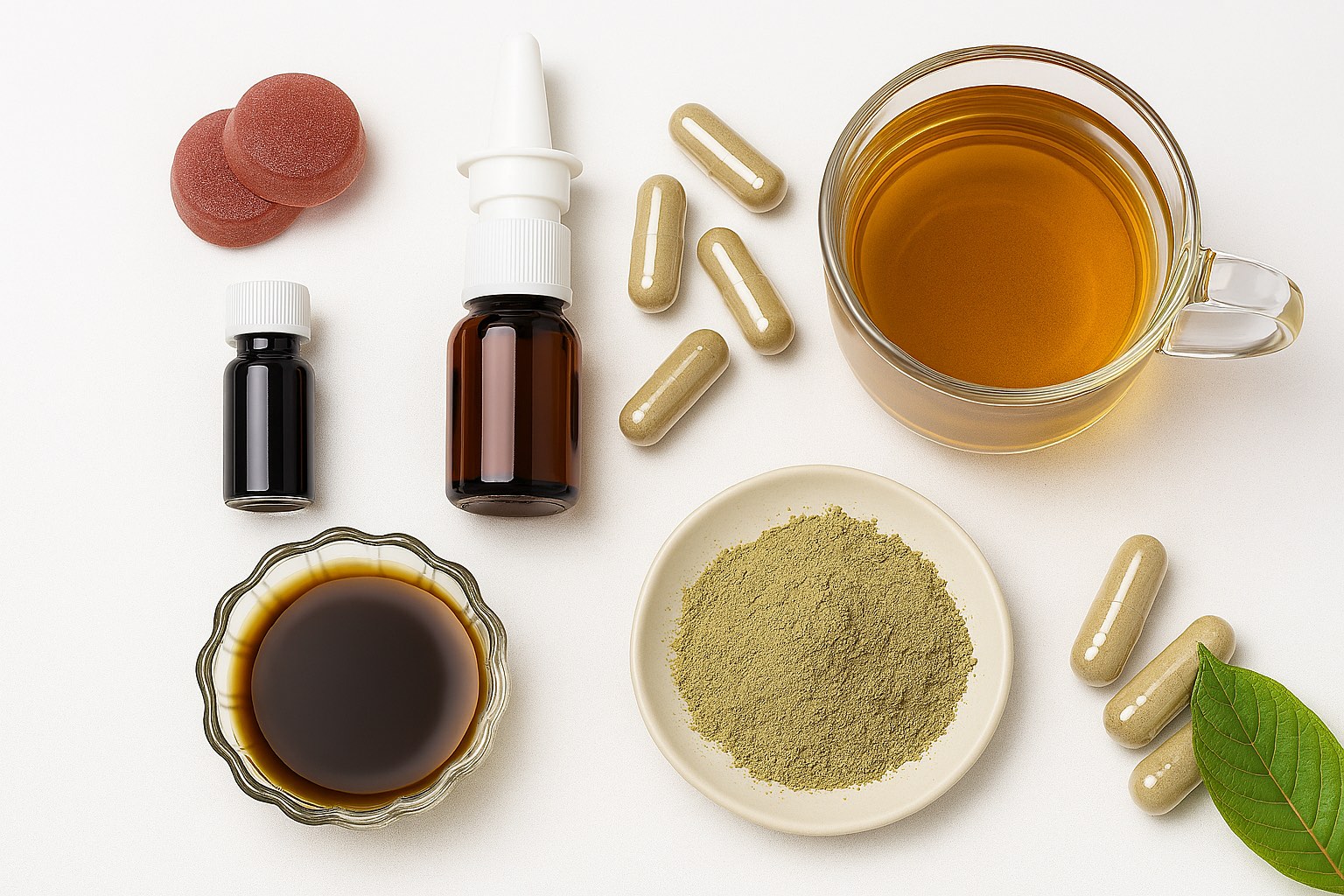Kratom plants have a rich history of cultural use and hold significant therapeutic potential for pain relief and mood support. However, the United States’ lack of standardized testing protocols for kratom products has raised concerns about potential consumer safety risks. Brands can overcome these concerns by utilizing ACS Laboratory’s comprehensive kratom testing services. ACS’ full panel kratom tests verify the absence of harmful contaminants and precisely quantify the active ingredients’ potency.
This article details kratom regulations throughout the U.S., the importance of kratom testing for consumers and brands, and ACS Laboratory’s full kratom testing panel.
The Regulatory Landscape for Kratom
Kratom’s regulatory landscape is mixed in the U.S.
The Drug Enforcement Administration (DEA) deems kratom a “drug of concern” but does not list the plant on the Controlled Substances list, making it legal on a federal level. Consumers can readily buy kratom online and find it in smoke shops, health stores, and even gas stations and farmers’ markets.
Additionally, many advocates support kratom use, scientific research, and common sense regulations and testing rules. On the other hand, some argue for severe restrictions and outright bans due to potential safety risks and misuse potential.
Support for kratom’s therapeutic properties
Kratom’s effects, from stimulating to sedative, and potential benefits for pain and mental health enabled it to gain mainstream acceptance in recent years.
Kratom plants are rich in bioactive ingredients, with over 54 compounds and over 25 alkaloids identified. Its primary active compounds, mitragynine, and 7-hydroxymitragynine (7-OH), act on the brain’s opioid receptors similar to morphine, producing analgesia (pain-relief), a sense of well-being, sedation at high doses, and energizing effects at lower doses.
Many people use kratom products for conditions such as:
- Pain management
- Anxiety
- Depression
- Opioid use disorder
- Opioid withdrawal
Recognizing kratom’s therapeutic potential, eleven states, including Georgia, Arizona, Nevada, Utah, and Florida, enacted the Kratom Consumer Protection Act. The law aims to preserve the kratom industry while safeguarding consumers by instituting age restrictions, labeling requirements, prohibition of adulterants, lab testing requirements, and good manufacturing practices (GMP) standards.
The FDA’s perspective
The FDA does not align with states like Florida and Utah. Rather than regulate the plant, the agency has not approved any kratom products for marketing and warns consumers against them. One risk it cites is unsafe levels of heavy metals, notably:
- Nickel
- Lead
- Iron
- Arsenic
- Manganese (up to 20 times the tolerable upper intake in some kratom tea samples)
Kratom is also controversial due to concerns over its similarities to opioid drugs and its potential for abuse. Opponents feel the lack of rigorous clinical trials and safety regulations poses consumer health and safety risks, increasing the chances of misuse.
Numerous states, including Alabama, Arkansas, Indiana, Rhode Island, Vermont, and Wisconsin, have outright banned kratom’s main active compounds (mitragynine and 7-hydroxymitragynine), while others have imposed rules about its sale and possession. Learn more about kratom legality here.
California recently sponsored a new bill that would set the most substantial restrictions on kratom in the country.
The Importance of Comprehensive Kratom Testing
Comprehensive kratom testing is a step brands can take to elevate safety and quality, negating some of the threats from lawmakers who want to restrict or ban kratom products.
As with any natural product, growing conditions, harvesting, transportation, storage, and manufacturing practices can all affect quality and potentially introduce harmful contaminants.
For example, the FDA detected salmonella, a dangerous bacteria, in 50% (33 out of 66) of the kratom product samples it audited, leading to the agency’s first-ever mandatory recall. They also found disturbingly high levels of heavy metals, which could cause dangerous side effects from heavy metal poisoning, including:
- Nervous system or kidney damage
- Anemia or high blood pressure
- Increased risk of certain cancers
Kratom suppliers can keep consumers safe and prevent recalls by sending samples for third-party kratom testing. This step can confirm that kratom products, including beverages, capsules, vapes, and edibles, are free from contaminants and contain appropriate potency levels.
Brands that publish their test results through a Certificate of Analysis on their website will appeal to consumers and regulators alike for their commitment to safety and transparency.
ACS Laboratory Guarantees Accuracy With Its Full Kratom Testing Panel
ACS Laboratory is a leader in kratom testing. Its scientific team partnered with Mitra Science, a leading global biotech company focused on the Mitragyna species, to develop the most comprehensive panel in the industry.
ACS Laboratory’s full kratom testing panel assesses the potency profile of the plant’s eight principal alkaloids using Liquid Chromatography Mass Spectrometry (LCMS). This precise method allows ACS chemists to quantify alkaloids to 1/10th of 1%, 1/10th of a milligram, and parts per billion.
The rigorous analysis also guarantees products are safe and free from contaminants like:
- Heavy metals, including arsenic, lead, mercury, cadmium, nickel, and manganese
- Pesticides
- Residual solvents used when making kratom extracts
- Bacteria, including E. coli and Salmonella
- Other microbes, including fungi and yeast
Why ACS tests kratom for manganese
ACS Laboratory took the extra step to address a critical safety concern in kratom products: manganese contamination.
The team added manganese to its kratom testing panel based on a 2022 study conducted by Virginia Commonwealth University, which revealed heightened levels in many commercial products. According to the findings, kratom products contained up to 20 times the tolerable upper intake.
Excessive manganese intake can cause harmful neurological effects, leading to a condition known as manganese toxicity or manganism that affects the nervous system. This disease produces symptoms that resemble Parkinson's, causing issues like:
- Behavioral changes, such as irritability, aggressiveness, and hallucinations
- Tremors
- Difficulty walking
- Facial muscle stiffness
ACS employs the latest advances in analytical chemistry, using Inductively Coupled Plasma Mass Spectrometry (ICP-MS) to detect traces of manganese in kratom products. It provides brands with a lab report, or Certificate of Analysis, confirming the results.
Bottom Line
Kratom testing with an accredited partner like ACS Laboratory is a vital step to ensure consumer safety and compliance. Without kratom testing, manufacturers risk selling products with inaccurate potency information or that contain dangerous chemicals and bacteria. With testing, brands garner consumer and regulatory trust.
ACS Laboratory’s kratom testing panel is driving the industry forward with pure, safe, and effective products. Suppliers and brands looking to stay on top of safety and quality standards can contact ACS Laboratory today to get started.









.png)




.png)
.png)
.png)
.png)